By Debra Chong
KUALA LUMPUR, May 4 — Did Datuk Seri Mohammad Nizar Jamaluddin ask the Sultan of Perak to dissolve the State Legislative Assembly on February 4 while aware he had lost the confidence of the majority of its members?
That appears to be the heart of the legal dispute in the case of Nizar who is suing Barisan Nasional’s Datuk Seri Zambry Abdul Kadir, the state assemblyman for Pangkor now occupying the top state government post, to be declared the lawful mentri besar (MB) of Perak.
The High Court here will have to decide, following the emergence of two starkly different accounts of what took place in Istana Kinta over a period of two days, on February 4 and 5, between Nizar and the ruler.
Pakatan Rakyat’s Nizar and the Perak State Legal Advisor (SLA) Datuk Ahmad Kamal Md Shahid took to the stand this afternoon to answer questions on what had taken place that day in the Perak palace when Nizar in an audience with Sultan Azlan Shah, had asked to dissolve the Assembly.
Both had earlier filed several affidavits each recounting the events before, during and after the audience leading to what is now generally seen as the constitutional crisis enveloping Perak.
Nizar maintains he is still the lawful MB because he has not yet given his resignation, which is required by law under the Perak State Constitution.
In his affidavits, Nizar had maintained he had asked the Sultan of Perak to dissolve the Assembly because there had been a “deadlock” in the number of supporters for Pakatan Rakyat (PR), which had formed the government of the day then, and its rival faction the Barisan Nasional (BN).
He noted the numbers for each side was 28 members, following the resignation of three PR assemblymen who had then gone “missing” and “were not contactable” during that period of time.
However, this view was challenged by Zambry’s lead counsel, Datuk Cecil Abraham, when Nizar sat in the witness stand today.
“I put it to you, you refused to resign when the Sultan refused the dissolution on February 5 pursuant to Article 16(6),” Cecil directed to Nizar, referring to the provision in the Perak Constitution.
Article 16(6) of the Perak Constitution states that “If the Mentri Besar ceases to command the confidence of the majority of the members of the Legislative Assembly, then, unless at his request His Royal Highness dissolves the Legislative Assembly, he shall tender the resignation of the executive council.”
“I deny it,” Nizar replied.
Cecil had earlier sought to discredit Nizar’s version of events by highlighting several events leading up to his fateful first meeting with the Perak Sultan on February 4 and later on February 5 when the Sultan informed him of his refusal to grant the dissolution of the Assembly.
Pointing out that the Perak Speaker V. Sivakumar, who had also filed his own affidavits, had stated he “from time to time, kept the mentri besar informed of the latest developments”, Cecil tried to establish that it seemed unlikely Nizar had been “kept in blissful ignorance” there were other events that had taken place before he approached the Sultan for a dissolution, including the withdrawals of the three PR assemblymen from Behrang, Changkat Jering and Jelapang, and the about-turn of the Bota assemblyman, said to have crossed over to PR from BN earlier.
Ahmad Kamal, who had taken the witness stand earlier, maintained his stand in his affidavits, that he had heard the Sultan of Perak expressly say he refused to grant Nizar’s request to dissolve the Assembly “pursuant to Article 16(6)”.
Ahmad Kamal who had attended the audience between Nizar and Sultan Azlan Shah on February 4, had admitted he had been “instructed to affirm” what had transpired between the MB and the ruler, by lawyers for Zambry.
Lawyer Ranjit Singh, in the absence of Nizar’s lead counsel Sulaiman Abdullah, had grilled Ahmad Kamal on the precise nature of what the Sultan had said to Nizar in reply.
“Whether His Royal Highness said he requires time to consider the dissolution pursuant to Article 16(6), are you seriously saying His Royal Highness said all those words?” Ranjit asked Ahmad Kamal.
“Yes,” was Ahmad Kamal’s short reply.
“I suggest this is untrue and created merely to advance the respondent’s case whom you used to act for. What His Royal Highness said was he needed time to consider but he did not say pursuant to 16(6),” Ranjit pushed again.
“I disagree,” Ahmad Kamal answered.
Ranjit then suggested Ahmad Kamal was “not a neutral witness” in the case because he had represented Zambry and taken orders from him at the beginning of the court dispute.
High Court judge Datuk Abdul Aziz Abdul Rahim adjourned the hearing which ran into overtime past 5pm today.
The questioning of Nizar and Ahmad Kamal continues tomorrow at 10.30am.
Subscribe to:
Post Comments (Atom)


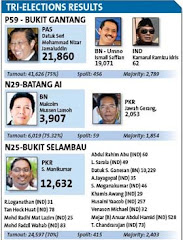

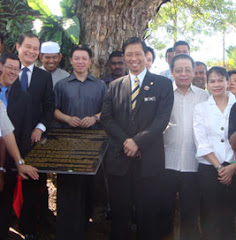

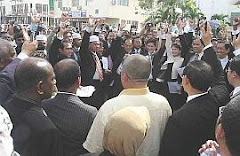
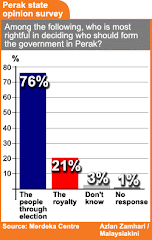

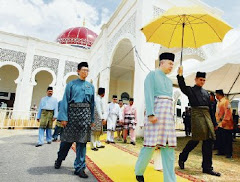
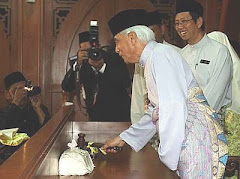
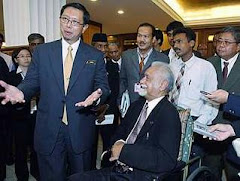





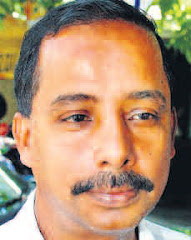
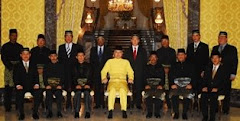


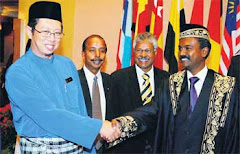
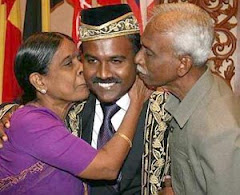
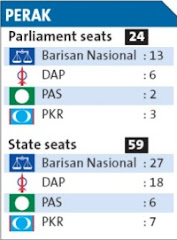

No comments:
Post a Comment